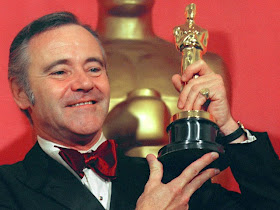Throughout 2015, I'll confine my posts about new releases to a once-a-month roundup. These will be shorter, and will read more like reviews for the most part than usual.
I found it fascinating that the big-eyes art was thought of, even in its day, as "kitsch" by critics, yet the movie makes it clear that it meant something significant to Margaret, even if she couldn't put her finger on what - and it meant something to all the people who ate it up. Once again, like in Birdman and Top Five, we see this disconnect between art and criticism playing out in recent movies.
- Mr. Turner. I remember learning about the late 18th-early 19th century English painter J.M.W. Turner in art school, and liking his work, but I never knew anything about the man himself. Mike Leigh's film about him gives me an idea, but I'm not entirely sure how much is fact and how much is the result of Leigh's unique improvisational method of crafting a screenplay.
I suppose it shouldn't matter in the long run, but I felt more emotionally detached from this movie than others that he's done. Beautiful cinematography, nice set design and period costumes, and a rather... unique and immersive performance from Timothy Spall, but the whole thing left me cold in the end. One big difference between this and Big Eyes is that Spall, an actual visual artist, actually looks like he's painting for real and is filmed accordingly, as opposed to Amy Adams, who you can tell is only pretending for the camera. Well, I can tell, anyway.
I was supposed to see this with Vija too, but she was sick that day. She saw it on her own and later, she told me that she saw the film as a metaphor for the British Empire during that period, which I thought was a remarkable interpretation.
- American Sniper. Yet another 11th-hour surprise from Clint Eastwood, this movie is really touching a nerve in America. How else to explain its jaw-dropping $105.3 million four-day weekend? I'm thinking this movie might win Best Picture.
You know the story by now: Chris Kyle, allegedly the most prolific sniper in US military history; four tours in Iraq; killed by an ex-soldier with PTSD that he was trying to help. I think it's finally time for me to stop underestimating Bradley Cooper, because he was quite good in the role. That said, I didn't think this movie had anything that new or different to say about the undeclared war in Iraq or the military, at least nothing that would garner all the success that it has enjoyed. It's a true story, I know, but it relies on familiar war cliches: the training sequence, the revenge killing for a fallen comrade, the long-suffering wife (who has very little to do here other than be a long-suffering wife). Plus, I found it difficult to look at this and not think of The Hurt Locker, which was a work of fiction, but was a better told story. And then there's the matter of how much the movie version of Kyle deviates from the real thing. It's not bad, but it doesn't scream Best Picture to me at all.
Check out my Tumblr page to read about my experience seeing Sniper at a local theater gambling on this movie in order to survive.
- Two Days, One Night. In this flick about corporate downsizing, Oscar nominee Marion Cotillard needs to convince her co-workers to support her in getting her job back. Guess how long she has to do it in. Belgian auteurs Jean-Pierre & Luc Dardenne shot this "Dogme 95" style, meaning handheld cameras, location shooting, no score (though I don't think they're officially part of the Dogme movement). Cotillard is very good, looking about as un-glamorous and ordinary as an international movie star can look and still be believable. I'm glad she got nominated, though I think I liked her a little bit better in her other 2014 film, The Immigrant. I don't think Vija was as sold on the premise as I was. She seemed lukewarm about the movie as a whole. I admit it didn't blow me away either, but I think it's worth watching.
Thoughts?



























